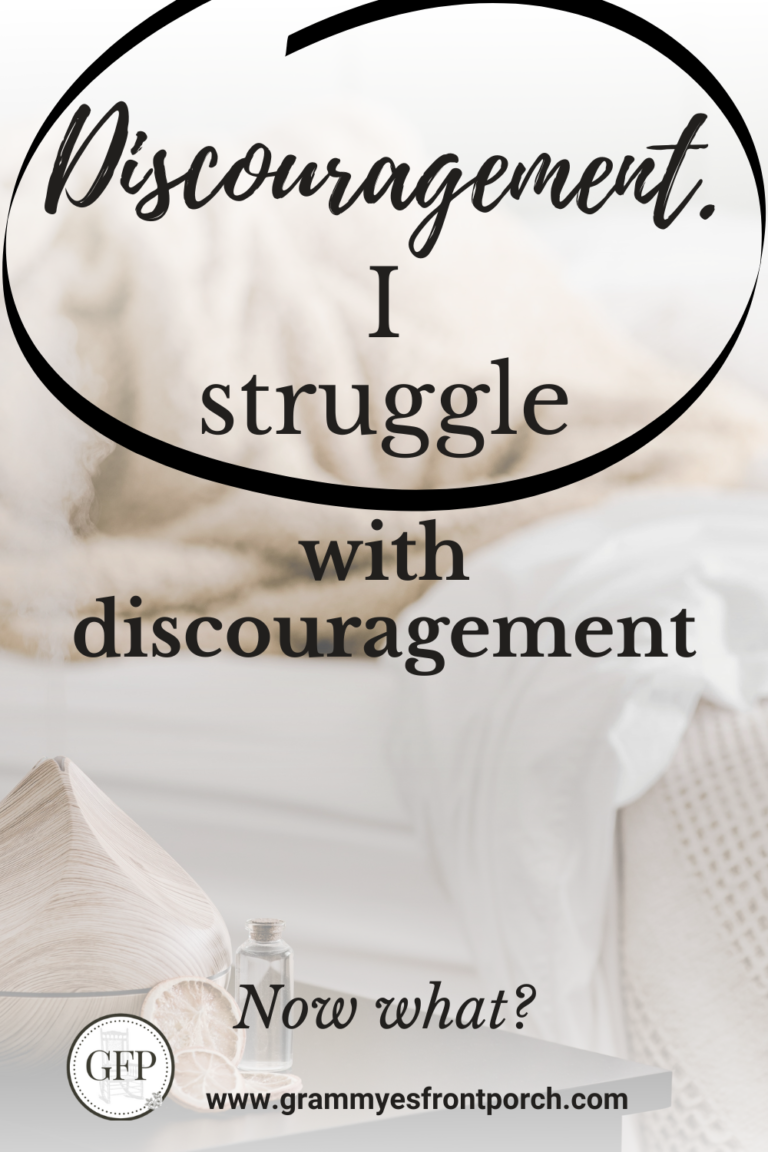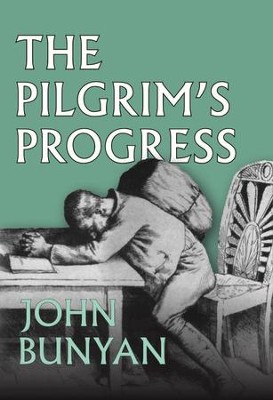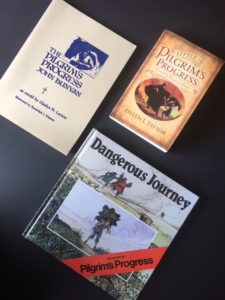July 17, 2020
( Lightly updated 8-9-22)
“Why don’t things work out for me? I watch everyone else get ahead. I feel like I’m stuck. What can I do?” Discover some things you can do right now.

“Why don’t things work out for me?”
That sounds like a question from a person who feels like they are outnumbered by “successful” people, doesn’t it?
And yet it has been asked on Google over 6 billion times. That’s incredible. So far in my research, this is the highest number I have found for people searching for an answer. The question most asked, out of all the questions I have checked.
That’s just sad.
And to compound the tragedy, look at the population numbers below:
- United States 331 million.
- World: 7.8 billion.
So wait a minute… has every U.S. citizen asked twenty times? (Including babies, right?) Or have most of the people in the world asked once?
I don’t really think it works like that. Still, the comparison of those numbers makes you think, doesn’t it?
But the real question is this:
Who is asking?
- Is it you? Or me?
- Is it someone we know?
- Could it be a person at work?
- What if it’s a family member?
- A young person?
And is it a situation that covers just a small period of time? Or are things escalating without relief?
If this is how people are feeling, who will respond to them?
Is it Google?
The point I may be making is this: we could be expecting too much from Google. 😯
Just think about it — these questioners went to Google instead of a person.
I LOVE Google.
- I can sit in my home office and view the beach in Dubai.
- I can find out how many people live in my country (I just did!).
- I can search for products and advice and history.
It’s really hard to believe.
But Google isn’t a person. It’s not wisdom or compassion or time. It’s just information.
Why did these searchers use Google instead of a person? And is that okay?
I really want you to answer in the comments.
Seriously.
I have these thoughts, but I want to know yours…
- Privacy?
- No close relatives or friends?
- No experience in solving this kind of problem?
- Trying to gauge whether this is a common problem?
- Or seeking worthy resources?
And by “this kind of problem” I mean a life issue, an emotional or career issue, or a relationship issue.
The struggle of feeling like things don’t work out.
ONE THING IS CLEAR:
PEOPLE ARE LOOKING FOR ANSWERS.


How do we learn our coping skills?
How did you learn to heal your emotional wounds, or your self perception problems, or unfair treatment?
How did you learn to conduct yourself at work?
How did you learn to recognize discouragement and work through it?
It’s important, isn’t it?
I grew up seeking all kind of information about these things, just my quirky interest. I read books, I talked with people, and I received incredible investments from caring adults who spoke to me about mature solutions for young-person problems.
It’s why I’m here. At this place. Pondering all these things with you. Because someone pondered them with me. Taught me to cope.
Coping.
You saw that word, didn’t you? Coping. Only people who have had to cope even think of the word. Like those industry buzzwords used only by the professionals. We “cope” because we have to, because we had to learn it.
And sometimes, a person who has coped turns to a new recruit to show her the ropes. Have you seen it? Schoolteachers tenderly respond to downhearted students. Widows turn to the woman whose loss is fresh, and welcome her sadly into their club. People do that. Thank you, people.


But we sometimes hit the road bump that makes us think nothing will ever work out. For some reason, it doesn’t just slow us down; it stops us.
This is when we need the path over the bump, the coping skill that will lead us out of discouragement.
More help:
Is Discouragement Choking You?
There is a great devotional from Desiring God Ministries, by Jon Bloom. It’s called, Don’t Let Discouragement Choke You.
This is a great read, not too long, and he quickly shows you the journey of thought about discouragement. The reason he uses the word “choke” is this: The remedy is to remove the obstruction. We have to seek out the promises God makes to us, and fix our vision there, instead of the choking of our faith in discouragement.
But maybe you feel like that’s the “easy” answer for people to give you. Maybe you aren’t helped by that. It’s not incorrect. It just doesn’t help. You’re still choking, right?
Maybe You Want More Concrete Solutions.
Here’s a way to think about discouragement.
When I was a young child, we lived in a house with an open stairway to the basement. The steps went all the way down, but if you didn’t want to go all the way, you could just go a few steps, and crouch down, and look into the room. Maybe that helped you find out if someone or something you were looking for was there.
So, you could go part of the way, or a little more, or all the way. And it’s the same with discouragement.
Maybe a small setback feels like just a couple of steps down. You’re not really planning to stay; you can turn around after a minute and go back through the door to upstairs, and you’re not “down” any more.
Or if you’re more upset, go halfway down those steps and have a seat, stay there a while, and think. And then return upstairs.
And you know the rest. Go all the way down those stairs, flop on the couch, and try to get comfortable, and settle in. Because you will not let yourself think about upstairs.
I’m not going to ask if you’ve been to that couch. You don’t have to tell me. But I can tell you that things appear there to help you get settled. A pillow and blanket, snacks, television. You can find a lot of reasons to stay, and a lot of excuses not to look at the stairs.
And I’m not going to tell you how I know. 😕
But I will say this: A compulsion to remain appears.
Think About Those Stairs…
This was simply your healthy retreat, your quiet place and time to gather your thoughts, right? But now, the idea of retreat offers an attractive (and deceiving) escape.
So one foot is on that last step. One hand is on the railing. And there’s a little pressure. Your faithful companions, guilt, fatigue, resentment, pain — they are all nudging you. Have them wait. (I can assure you they aren’t going anywhere.)
Stay right there.
Before we make a decision on “up” or “down” as our next step, let’s look at what people say about being at this point.
Think About How We Decide…
An article from Crosswalk talks about the need to control our thought life, called: How To Take Heart When You Are Discouraged. It’s from a booklet called “Stay Encouraged” written by K. P. Yohannan. He gives some very practical advice for working your way back up those stairs.
Here’s an excerpt:
One of the reasons why people become cold and cynical is because they forget the place from where the Lord has brought them. They forget His goodness toward them in times past. They forget that He is faithful.
You’re still reading. And you get all that. But there’s more.
What If Things Still Don’t Work Out? What Then?
The persistent struggle of weighty circumstances.
You’re still challenged by your situation. It seems hopeless.
Here is where we find the deep roots of discouragement. The dark places of the thoughts that hold us down. Their grip seems inescapable.
I know.
But haven’t you been here before? Discouraged? There is a human tendency to focus on the downstairs, so much so that we forget the upstairs.
But the upstairs — it’s still there. And in a minute I’ll remind you of the truth of your upstairs.
Despair
In Pilgrim’s Progress (by John Bunyan), we know of Doubting Castle, and its owner who lives there, Giant Despair. In the story, only one key can open the doors and gates for the prisoners. What’s the name of the key? “Promise.”
Tuck that word (“promise”) in your pocket for now; In a minute I’ll say something important about that “key.”
If you’ve never read this allegory, I can’t even begin to tell you how meaningful a work it is. I read it first as an adult, and loved it. Each time I return to it, I am plunged into the story once again, and reminded of the promises that lead us out of the dangers and difficulties of this world.
(The version I first read was retold by Gladys Larson, in which the revisions make it more easily read and understood. I have purchased several versions, pictured below.)
Do Smart People Struggle With Discouragement?
They do. Not only that, people of faith struggle with discouragement. So do successful people.
It’s true. Seems like a secret, right? But it’s not.
For instance…
This struggle, fighting discouragement, does not spare the faithful. Charles Spurgeon, so influential he was called “The Prince of Preachers”, said to his congregation, “There are dungeons beneath the castles of despair.”
This famous, faithful man: He revealed the depths of his struggle to his congregation.
Smart people, spiritual people, successful people, mature people — It doesn’t matter. Anyone can struggle with discouragement.
That’s tough. What do they do?
Fortunately, most agree on four basic truths about discouragement.
Some hard things to hear:
- Discouragement is real. It isn’t imagined or contrived. It’s an emotional reaction to a circumstance or a perception. The official definition is “A loss of confidence or enthusiasm, a dispiritedness.”
- There’s no magic eraser for discouragement. You don’t just make it disappear, or ignore it.
- Discouragement weakens us. It’s greedy, and grabs for all of our attention, leaving little resources for anything else. It diverts our efforts.
- The rescue is found in you. There’s no pill, or hiding place, or person who will fully correct discouragement. Those things will give some relief in your circumstances, but the healing you seek is deeper. Some say it is divine. You have to apply yourself with great strength to reframe your thought life and your reactions.
There is guidance for this in Scripture, but often we need someone to point it out.
And even listening to the “pointing out” requires something. It requires us to rise up a little and acknowledge the stairs.
And now, you have a fight on your hands.
The same forces that provided the pillow, blanket, snacks, and television, will now cover our eyes and ears and refuse help.
The pill, the hiding place, and the person — they all came to your aid; But now they wait for you to take action.
Recognizing this is essential to moving ahead.
And we are still thinking about how to think, right?
There’s another article I want to share, with some actions you can take to climb back up the stairs.
This came from a website called Bible Study Tools, and the article is by Leslie Vernick. It’s called, 5 Ways To Stop Discouragement.
The five actions covered here are things you can do:
- Be honest,
- Take care of your body,
- Pay attention to your thought life,
- Train yourself to see life a new way,
- Press close in to God.
The explanation of each of these is very straightforward and helpful. Please click the link and read over this — It should open in a new window so you don’t lose your place.
Human Nature When Things Don’t Work Out:
When sadness strikes, our focus turns inward. We concentrate on the pain and the struggle. Not only that, but this: If God allowed this pain to enter our lives, we often are angry and completely reluctant to look to Him for the remedy. This very circumstance is often the setting for faith that feels shattered. It’s our normal human reaction.
Yet, all around us are the people who have endured great tragedy and stand in faith to persevere.
Those caring people who ministered to me throughout my life, those are people who endured tragedy. In my times of being disheartened, floundering, and lacking any view of purpose in my life, they pointed out the help I needed.
They urged me forward, out of my self-absorbed thoughts, and helped me to break free of the greedy clutches of discouragement. Having done this repeatedly, I am surprisingly much better at managing it. My perception, my techniques, and my recovery have all improved.
And still, I seek more.
As a carpenter embraces a new and better tool for his work, I embrace methods and techniques that are new and better for me.
- Wise people to lift my thoughts to something deeper than my circumstances.
- Words of promise.
- Truth of Scripture.
- Guidance and insight.
Joining with people who embrace wisdom, love, and purpose.
Search For The Right Kind of Help
Do I Use Google?
Yes, I do. Absolutely. Every day. For work, for personal reasons, for information.
But remember this: Google is the phone book. Not the textbook, not the self-help book, and not the Good Book. It’s where you look for the contact information, or the topic, or the book to purchase, or the institution that will help.
When you get ready to look up the information, seek the right kind of help.
Google isn’t judging you, and they aren’t judging who you find. They are simply making information available.
If you’d like some suggestions, try these:
Why these in particular?
To keep you safe.
Because being discouraged (or angry, or sad) leaves you vulnerable. You close in on yourself, and stop trusting the people who care about you, and you even stop trusting in truth. You stop trusting what you trust.
Now, Think About Upstairs…
This is true: while you’re down those stairs, all that you trust is still happening upstairs: The people who truly care about you, gravity, weather, the laughter of children, the hard work of living, the God who created you, the rotation of the earth, it’s all still happening.
And you are a part of all that. The tapestry of the world. Your thread is woven into the lives of others: your work and investment bring light and improvement to people and situations.
Your story is shared, and expanded, and interwoven with the stories of others.
When you’re hiding out, your activity is on “pause” but the rest of the world continues.
You know what won’t take you back up the stairs?
Swallow hard, and face four habits that keep us discouraged. Read them slowly, near a mirror. Because we’ve all been there.
Four things that won’t help discouragement:
- The lies of self-love.
- The anger of feeling slighted.
- The greed that seeks pleasure at the expense of someone else.
- The refusal to work (at anything and everything).
These things won’t get you there.
When you peel away those four things, and look at the heart of the matter, you end up with a statement about your purpose, your action, and ultimately your joy.
God created each person for a purpose. The overall purpose is to glorify Him. The many ways to do that are shown in each person’s circumstances. The opportunities to interact each day with others.
Seeking help to get back on track is a topic that deserves much more exploration:
What will my action be; What will I seek?
- Will I seek upward, to gravitate toward the way, the truth, and the light?
- Or will I seek the darkness which intends to steal, kill, and destroy?
Seek.
An attempt or desire to find, obtain, or achieve.
Why is this word so important?
Because there is something in your being that knows to seek.
Sea turtles crawl to the sea. Babies turn their faces to receive their food. Humans seek freedom from pain. Seeking is in our nature, a part of our created instincts.
You were made to seek, and you have to direct your seeking when it gets off course. When you recognize that “compulsion to remain” that capitalizes on your weakness and fills you with greedy emotions.
Where is the prompting for the beginning of “seek”?
Remember the key mentioned above? Promise.
Here’s what happened:
The man on the journey, named Christian, jumped up and cried, “What a fool I am to lie in this dungeon when I could be free! I have a key in my pocket that I am sure will open all doors. It is called Promise.”
The prompting is in remembering. Remembering the promises of God.
He wasn’t thinking about it. Neither are we, when greedy discouragement is screaming louder than knowledge.
Promise.
Promise of the coming joy.
There is a beautiful verse that describes the vastness of God’s love. One of the most important prayers for another human being, praying for their inner being.
What if you prayed this for yourself?
It is right here, in printable form. (This is a Scripture Memory Tool, a way to memorize a passage of Scripture, and it’s a free download for you.)
This truth-filled passage is followed by these words (Ephesians 3:20-21, emphasis mine):
Now to him who is able to do far more abundantly than all that we ask or think, according to the power at work within us, to him be glory in the church and in Christ Jesus throughout all generations, forever and ever. Amen.
For me, for you, for the struggling person, for the believer who walks with me, and for the stranger, I can ask God to do far more abundantly than all I can ask or think. And I do.


Why Don’t Things Work Out For Me?
You may remember that this is a part of a current series on struggling.
(This post is the second.)
The first was When Life Is Overwhelming, which you can go back and read if you want to. The third in the series is about Feeling Like A Failure. The final topic is about being Brave When You’re Afraid.
Before this series there were posts on Relationships and on Grieving.
It’s still about doing life together, and looking for that better way. It’s about truly loving each other, being involved enough to know, and being willing to care.
I want to gather meaningful resources and share some honest experiences. Which I am building the courage to do.
What about you? I’m not a “betting” kind of girl, but I’d wager a guess on this: Someone in your life is discouraged. You, or someone you know.
We “stopped” a few minutes ago, at the base of those stairs. What is it you’ll do to take that next step up?
Maybe along the way you can let me know if you were comforted in any way, or if you were able to share anything you read here. Or if I missed the mark.
In fact, that is one of the things here at GFP that I love the most: Letting someone know.
Thank you! At GFP company is always welcome!
If you liked this topic 🤗, feel free to 👉 share 👈 on Facebook or Pinterest, or send a link to a friend.
Are you on Pinterest? That is a crazy fun place! You can find so many helpful things. Take a look at what I’ve saved for you! A lot of things that never make it to the blog. Here are my Pinterest pins, and I also have categories/boards if you’re looking for something specific.

Would you like access to the Subscriber Resource Library here at GFP? All the recipes, Scripture printables, etc., are available there, at no cost. Subscribers receive a password to access the library.
-Grammye
I’m Grammye, and I’m collecting and sharing ideas that can help you embrace the life you have.
When things are difficult, come here to refresh and relax. We’ll have coffee and talk.


You’re invited
to the neighborhood of GFP.
Accept by signing up
and I’ll send you a letter right away.
Subscribing to GFP is just like getting a magazine. Except it’s free! You won’t be asked for any payment information. So say yes, then check your junk/spam mail in case the confirmation gets lost on the way!




I wonder if it’s easier to admit you’re struggling to Google rather than admit it to another person. Like you said, Google offers an abundance of information, but not the empathy, understanding, or camaraderie you’d get from another human, especially one you know. It’s sad to me that our society has never been more open to discussing “taboo” subjects like mental health than it is today, and people are still hesitant to ask for help.
Erin, that is so true. “Another human” is such a vital part of moving ahead, having the safe place (in friendship) to share our heartaches and our journeys. Thanks for visiting, and for sharing.